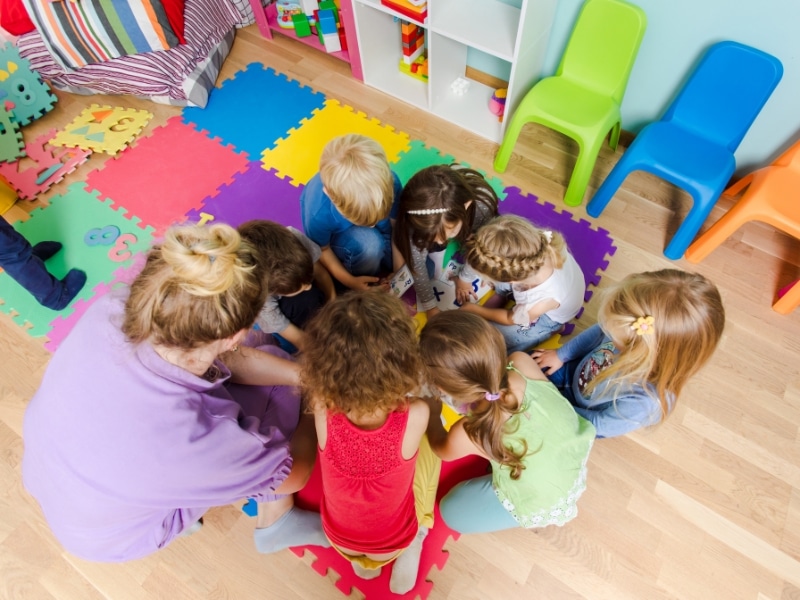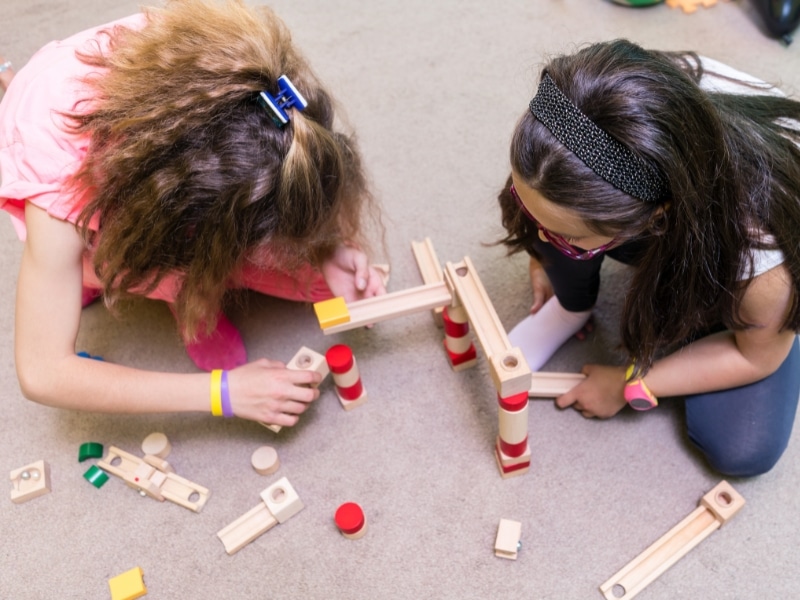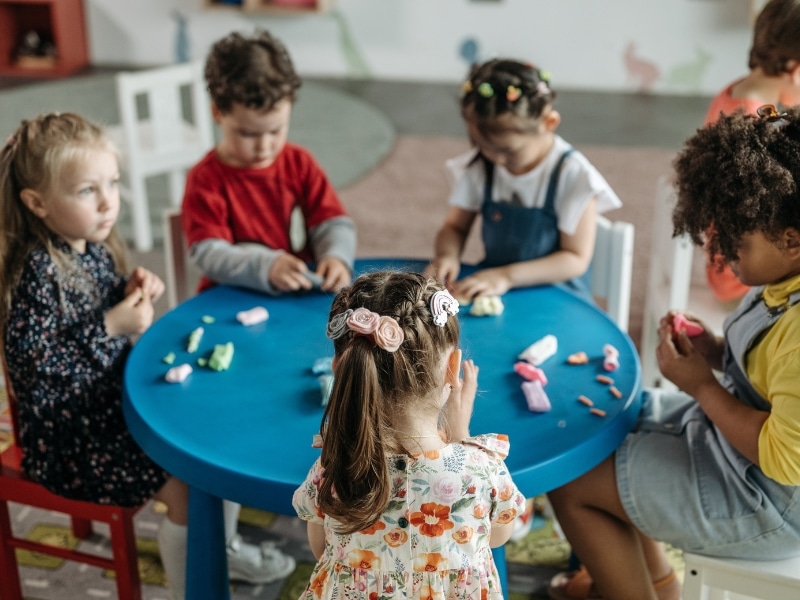Which Preschool Daycare Activities Boost Cognitive Skills?

When it comes to early childhood education, one of the most important aspects of a child’s development is cognitive skills. These mental abilities allow children to learn, understand, reason, remember, and problem-solve. Engaging in cognitive activities for preschoolers is crucial in nurturing and enhancing these cognitive skills, setting the foundation for future academic success. So, which preschool daycare activities are best for boosting cognitive skills? Let’s explore some activities that are not only fun but also help preschoolers develop essential mental abilities.
What are cognitive skills, and why do they matter?
Cognitive skills refer to the brain’s ability to process information, solve problems, remember facts, and understand new concepts. Developing these skills early on is critical for young children, as it helps them succeed in later years of education and everyday life. Here’s why cognitive skills are so crucial for preschoolers:
- Memory and recall: These skills help children remember and retrieve information they’ve learned, which is essential for academic learning.
- Problem-solving: As children encounter challenges, the ability to think critically helps them find solutions.
- Reasoning and decision-making: Cognitive skills are key to logical thinking, making choices, and understanding cause and effect.
- Attention and focus: Concentrating helps children engage in learning activities effectively.
- Language development: Cognitive skills also support language comprehension and communication.
Incorporating cognitive activities into preschoolers’ daily routines can help boost their intellectual development, paving the way for lifelong learning.
How do preschool activities help boost cognitive development?
Preschool activities are designed to engage children’s minds in creative and stimulating ways. They not only make learning enjoyable but also encourage the development of cognitive skills. Here’s how different types of preschool activities contribute to cognitive growth:
- Encourages curiosity: Activities that spark children’s curiosity, like exploring nature or playing with puzzles, promote inquisitive thinking.
- Enhances memory: Repetition-based games and activities can strengthen memory retention, helping children to remember information.
- Fosters problem-solving: Activities that require thinking and reasoning, such as building blocks or simple science experiments, help develop problem-solving skills.
- Boosts concentration: Tasks that need focus, such as completing a jigsaw puzzle, improve attention span and concentration.
By engaging in age-appropriate cognitive activities for preschoolers, your child will naturally develop the mental flexibility essential for success in school and beyond, highlighting the importance of early childhood education.
Which hands-on activities enhance cognitive skills for preschoolers?
Hands-on activities are fantastic for boosting cognitive skills in preschoolers as they encourage active participation and learning. These activities engage the senses, promote creativity, and enhance critical thinking skills. Here are some examples of hands-on activities that are particularly effective:
- Building blocks and construction toys: These activities encourage spatial awareness, problem-solving, and fine motor skills.
- Arts and crafts: Activities like drawing, painting, and sculpting enhance creativity, fine motor skills, and the ability to think abstractly.
- Sensory play: Playing with sand, water, or textured materials helps children develop sensory awareness and motor coordination.
- Puzzle games: Jigsaw puzzles, shape sorters, and pattern recognition games promote logical thinking and concentration.
- Simple science experiments: Hands-on experiments, such as mixing colours or watching a plant grow, spark curiosity and introduce children to basic scientific concepts.

These activities support cognitive growth by giving children opportunities to think critically and solve problems in a hands-on, engaging way.
How do literacy and numeracy programs build a strong foundation?
Literacy and numeracy are foundational skills every preschooler needs to succeed in school. Preschool programs help build a solid academic foundation by introducing these concepts early on. Here’s how these programs enhance cognitive development:
- Literacy: Reading aloud to children, teaching letter recognition, and engaging in storytelling activities contribute to language development, comprehension skills, and vocabulary growth. Reading and writing also help children develop their memory and attention span.
- Numeracy: Counting, recognising numbers, and engaging in basic maths activities help children understand patterns, shapes, and quantities. These activities enhance logical thinking, critical reasoning, and problem-solving abilities.
A well-rounded literacy and numeracy program helps preschoolers develop the cognitive skills they need to excel in later years of schooling.
What role does creativity play in developing cognitive skills?
Creative play is a powerful tool for boosting cognitive skills. When children engage in creative activities, they exercise their imagination, experiment with new ideas, and develop critical thinking skills. Here’s how creative play helps enhance cognitive abilities:
- Stimulates imagination: Imaginative play, such as role-playing or storytelling, encourages children to think creatively and build narratives.
- Encourages problem-solving: Children who engage in pretend play encounter challenges that require finding solutions, fostering problem-solving skills.
- Promotes emotional development: Creative play also helps children develop social and emotional intelligence by learning to express their feelings and interact with others.
Through creative play, children build cognitive flexibility, which enables them to approach problems from different angles and think innovatively.
How do play-based activities promote cognitive and social growth?
Play-based learning is where children learn by doing—playing games, exploring, and engaging with their environment. These activities promote cognitive growth and nurture social and emotional skills. Here’s how play-based activities help:
- Promotes collaboration: Many play-based activities involve working with others, which teaches children cooperation, negotiation, and empathy.
- Builds communication skills: Through role-playing and group play, children learn how to express themselves verbally and non-verbally, improving their communication skills.
- Encourages problem-solving: Play-based activities often require children to solve challenges, which enhances critical thinking and decision-making abilities.
- Develops emotional regulation: Through social play, children learn how to manage their emotions, understand others’ feelings, and resolve conflicts.

Play-based learning is a well-rounded approach to nurturing cognitive and social development, helping preschoolers grow into well-rounded individuals.
Why is social interaction key to boosting cognitive skills in preschool?
Social interaction plays a crucial role in developing cognitive skills in young children. When preschoolers interact with their peers and educators, they learn essential skills that aid their cognitive growth. Here’s why social interaction is so important:
- Improves communication skills: Interacting with others allows children to practice speaking, listening, and understanding language, which boosts their cognitive abilities.
- Encourages emotional intelligence: Socialising with peers teaches children how to navigate emotions, build empathy, and understand social cues.
- Enhances cognitive flexibility: Children learn to adapt their thinking and approach problems from various perspectives through group activities.
A preschool environment that encourages social interaction provides numerous cognitive benefits, supporting the development of communication, emotional, and problem-solving skills while promoting daycare’s benefits for social development.
What are the benefits of structured learning activities for cognitive growth?
Structured learning activities are essential for providing preschoolers with a well-organised, balanced curriculum. These activities offer several cognitive benefits, including:
- Focus and discipline: Structured activities require children to focus on a task, promoting concentration and self-discipline.
- Reinforcement of learning: Repeating specific tasks in a structured manner helps reinforce learning and strengthen memory.
- Encourages time management: These activities often have specific time frames, helping children develop time management skills.
- Enhances problem-solving: Structured activities, such as puzzles or games, promote logical thinking and strategic planning.
By providing structured learning activities, you give your child the tools to succeed cognitively and academically.
Encouraging cognitive development in preschoolers
Preschool daycare activities are a fantastic way to enhance your child’s cognitive development. Each activity builds vital skills from hands-on experiences, creative play, social interactions, and structured learning. Providing a well-rounded, engaging preschool learning program creates an environment that sets your child up for success in school and life.
At Innocent Minds, we’re passionate about offering a nurturing, tailored preschool experience to set your child up for success. Our engaging programs focus on individual growth, providing a solid academic and social development foundation. With a dedicated team of experienced educators and a curriculum built around your child’s needs, we ensure a positive start to their learning journey. If you’re in the Punchbowl or Yagoona areas, contact Innocent Minds today to learn more about our daycare and preschool programs tailored to boost cognitive development!
Frequently Asked Questions
At what age do cognitive skills start developing in children?
Cognitive skills start developing from infancy, but preschool years are crucial for rapid cognitive growth.- How can parents support cognitive development at home?
Parents can read with their children, engage in problem-solving activities, and encourage hands-on learning through play. - Do preschool activities help with emotional intelligence too?
Many preschool activities also support emotional intelligence by teaching social skills, empathy, and self-regulation. - How important is outdoor play for cognitive growth?
Outdoor play promotes problem-solving, creativity, and sensory learning, all enhancing cognitive development. - What are the best types of toys for cognitive development?
Toys like puzzles, building blocks, shape sorters, and pretend play sets encourage thinking, reasoning, and creativity. - Can too much screen time affect cognitive development?
Excessive screen time can reduce attention span and critical thinking skills if not balanced with hands-on activities. - How does music influence cognitive skills in preschoolers?
Music helps with memory, pattern recognition, and language skills, making it a tremendous cognitive booster. - Why are routines necessary for cognitive growth?
Routines help children develop time management, memory retention, and a sense of structure for learning. - How do group activities enhance cognitive skills?
Group activities improve communication, problem-solving, and teamwork, all essential for cognitive and social development.
Is unstructured play as beneficial as structured learning?
Yes, unstructured play encourages creativity, independence, and problem-solving in a natural, engaging way.
